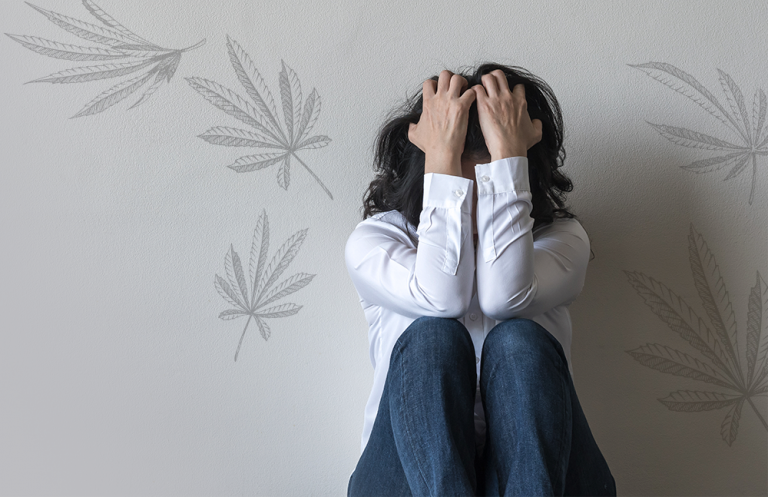Exploring Medicinal Cannabis for Depression: CBD vs THC
With depression rates steadily rising in the UK, particularly exacerbated by the recent pandemic, finding effective treatments can feel overwhelming. It’s more important than ever to understand the range of symptom-relieving options available, and one such option might be incorporating medicinal cannabis into your treatment plan.

In November 2018, UK legislation legalised the use of cannabis-based medicines for individuals with a wide range of physical and mental health issues, including clinical depression. Although medical cannabis is not a cure for depression, it may help reduce the symptoms of this debilitating condition.
Depression, alongside anxiety, is the most frequently diagnosed mental health disorder in the UK. Symptoms can range from mild to severe, including:
-
Feelings of helplessness
-
Persistent sadness
-
Lack of motivation
-
Low self-esteem
-
Excessive guilt
-
Thoughts of self-harm
-
Suicidal thoughts
CBD and THC are two of the most prominent cannabinoids found in the Cannabis sativa L. plant. THC is known for its intoxicating effects, while CBD has no intoxicating properties. Both cannabinoids may offer therapeutic benefits, but how do you decide which one is more suitable for managing depression symptoms?
Differences Between CBD and THC
Both CBD and THC are classified as phytocannabinoids, meaning they are cannabinoids produced outside the human body. Despite their shared classification, the key differences lie in their chemical structures and psychoactive effects.
THC is the main psychoactive component of cannabis, responsible for the euphoric effects often associated with recreational use. It binds to CB1 receptors in the brain, influencing mood, behaviour, perception, and cognition. Though legal in the UK for medicinal use, THC remains illegal for recreational consumption.
CBD, in contrast, does not produce intoxicating effects and interacts with the body’s endocannabinoid system differently. Research suggests CBD reduces the breakdown of naturally occurring endocannabinoids and may increase serotonin production, a neurotransmitter linked to mood regulation. Products containing CBD are legal in the UK, provided they adhere to specific regulations.
Both cannabinoids offer therapeutic benefits, but it’s important to be aware of potential side effects.
-
THC side effects: High doses of THC can lead to paranoia, anxiety, increased heart rate, impaired motor skills, dry mouth, and red eyes.
-
CBD side effects: Generally well-tolerated, though some patients experience gastrointestinal discomfort, red eyes, and low blood pressure. CBD can also interact with certain medications, though these interactions are usually minor.
